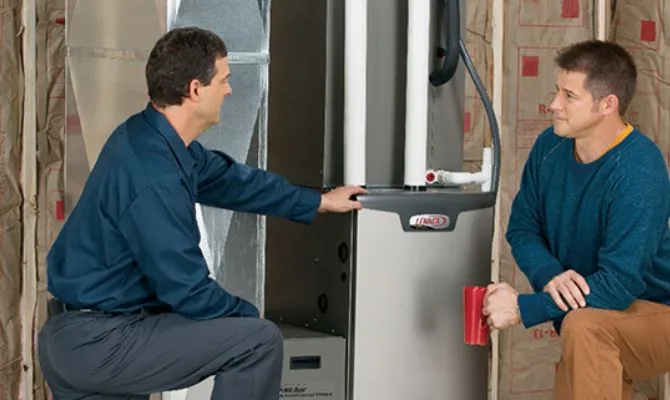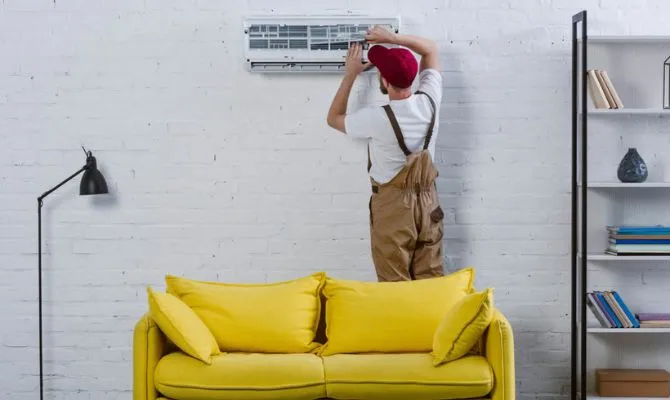Many homeowners today would agree that a combination – or combi – boiler is hot stuff when it comes to efficiency and cost effectiveness. Before you rush out to buy one, it’s important that you, yourself, know how they work and why combi boilers make devoted fans of the people who use them.
The combi boiler provides home heating and hot water in one compact unit that combines both a high-central condensing boiler with a built-in secondary heat exchanger that provides hot water. It generally saves both space and money for the homeowner.
But, wait, you might say. A standard boiler can also offer both heat and hot water to a home. It’s true, but it doesn’t do so as efficiently or so compactly.
With both combi and traditional boilers, the boiler heats water, then sends that hot water/steam throughout the house via radiators or radiant floor systems where it gives off its heat to warm the air.
The major difference between the two is how they provide hot water – and that has an impact on the space required to house each type of unit.
The Standard Boiler
A traditional boiler system heats water in a tank on an ongoing basis, so it’s ready to serve whichever tap or appliance has a need for it.
This requires at least two storage tanks: one for cold water and one for hot water. Your main water line provides the water that is stored in the cold-water tank and sent to a hot water tank to be heated.
When you use hot water, the cold-water tank replenishes the supply in the hot water tank, where it is kept warm by heating coils. The hot water from the tank also runs through the boiler to the pipes that heat your home.
The Combi Boiler
The combi boiler only heats water on an as-needed basis and has two independent heat exchangers – one for heat and one for hot water – but no storage tank.
The control valves for the two exchangers work in opposite directions, so one will take priority over the other.
When you want to heat your home, you set your thermostat and that signals the boiler to send heat through the home’s primary water pipes for distribution. When the appropriate room temperature is reached, the boiler switches off.
When you request hot water, the system sends water from your main water line through a heat exchanger to provide hot water to taps or appliances, providing hot water on demand – and with solid pressure.
What are the Pros and Cons of Combi Boilers?
It’s hard not to love a combi boiler. They take up very little space, so they are ideal for condominiums and apartments, as well as homes.
COST SAVINGS
The cost to run the system is low, since you don’t pay to continuously heat water in a storage tank. And, if you aren’t using the heat – hello, summer – the cost of hot water for your showers will be minimal.
They are generally 90 per cent efficient – a plus in these days of energy consciousness — and allow you to save money on your utility bills. You heat only the water you use, and if you have multi-zone heating, there’s no need to heat seldom-used spaces on a regular basis.
AFFORDABLE INSTALLATION
Combi boilers are easy to instal, so you can have a system up and running quickly. They are also neat and tidy in design and are less expensive to instal than the traditional boiler.
FRESH WATER
They provide you with fresh water each time you turn on a tap, rather than water that has been sitting in a storage tank.
TAKE NOTE
However, the combi boiler isn’t perfect. If more than one outlet needs hot water simultaneously, you may experience a drop in water pressure, and there is no backup immersion heater on hand to provide hot water if there is a breakdown in your system.
Why wait? Your HVAC professional will be happy to explain combi boilers in detail and match you with the best system for your home. You can then sit back, save money and enjoy instant hot water.



